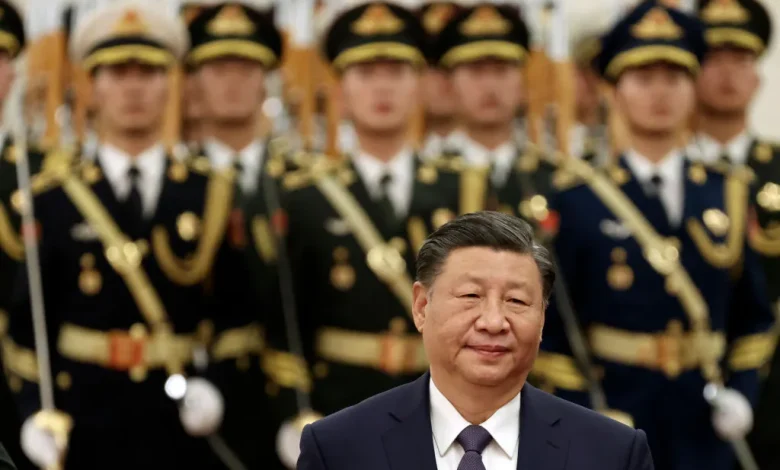Inside Xi’s purge of China’s military leadership
The country has pumped billions into defense. Did that create opportunities for corruption?
China is turning its military leadership upside down.
Axios reported that leader Xi Jinping is purging the country’s defense establishment, “risking instability and a crisis of confidence during a sensitive time in China’s foreign relations.” Nine generals — mostly those who oversee the country’s Rocket Force missile program — were among those removed from a Communist Party advisory committee last week. The firings “are the latest in a series targeting top-level defense officials in China.”
What’s going on? Maybe it’s a good old-fashioned grift. Xi’s purge is “exposing deep-rooted corruption that could take more time to fix,” Reuters reported. No explanation was offered for the generals’ removals, but China has “pumped billions into buying and developing” its military in recent years — and now there are questions “over whether there has been adequate oversight over these massive military investments” That suspected corruption may be widespread within the senior ranks of the military. “It seems to have involved several senior men rather than one ‘bad apple,'” said one analyst.
The instability could undermine China’s readiness for war at a time of rising tensions with the United States. “I think there may be a great deal of corruption in the Chinese defense industry,” Tamkang University’s Lin Ying-yu told Voice of America, “and inevitably, it will have an impact on the People’s Liberation Army’s combat effectiveness.”
Like Mao? Or Stalin?
There’s a bigger picture here. Xi’s anti-corruption drive is reminiscent of Mao Zedong’s “continuous revolution,” Chun Han Won argued at The Wall Street Journal. Since taking power in 2012, China’s leader has conducted an “unrelenting campaign” that has punished “scores of senior officials, bankers, hospital directors and even soccer administrators” in business, sports and government agencies. “Battling corruption is the most thorough form of self-revolution,” Xi said in 2022. But the purges also serve to “enforce fealty, through fear, to himself and his vision.”
But there’s something different about the latest round of “Stalin-like” purges, Politico reported. Earlier anti-corruption drives were aimed at “hostile political factions.” The more recent actions target “loyalists from the inner ring of Xi’s own clique, leading to serious questions over the regime’s stability.” The result? There is a “feverish paranoia permeating Beijing.”
One beneficiary: Former Admiral Dong Jun, who once ran China’s Navy, has been appointed the country’s new defense minister — an announcement that comes months after his predecessor, Li Shangfu, was removed from office after disappearing from public view for two months. CNN reported that the post is “largely ceremonial” but that Don’s appointment “could facilitate the ongoing restoration of high-level defense dialogue between the U.S. and China.”
Rising tensions
All of this comes amid concerns that the United States and China are moving closer to war in the Pacific. Xi and President Joe Biden seemed to take a step back from the brink at their November summit in San Francisco, Michael T. Klare noted at The Nation. Fundamental challenges remain, however: CNBC noted that during his New Year’s address, Xi announced that China’s reunification with Taiwan is “inevitable” — striking a stronger tone on the topic than he had a year earlier. “His words were full of confrontational thinking,” a Taiwanese spokesperson said.
The question is whether China is ready for that confrontation. The latest purge suggests perhaps not. “It will take some time for China to clean up the mess and restore confidence in the Rocket Force’s competence and trustworthiness,” the Stimson Center’s Yun Sun told Reuters. “It means for the time being, China is at a weaker spot.”

